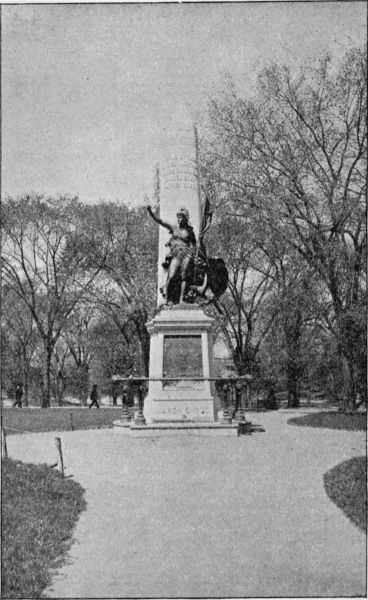
THE NEGRO
AND AMERICAN LIBERTY.
1895:
Published by Prof. John Moore,
Boston, Mass.

B. WILKINS & CO.,
PRINTERS,
93 FEDERAL ST., BOSTON.
[Pg 3]
WHAT THE NEGRO HAS DONE FOR LIBERTYIN AMERICA.
BY PROF. JOHN MOORE.

It seems like a paradox to speak of the Negro as efficientlyrelated to the cause of freedom in America. He wasbrought here and forced into slavery, in which condition hewas held most of the time since the country was settled.He was treated not as a human being, but as property to be used onlyfor the advantage of his oppressors. Some became free, but North aswell as South, they were largely shut out from the opportunities for industryand general improvement of their condition. They were undera social ban and not recognized as equal to their fellowmen of a differentcomplexion. After suffering from such treatment for generationsit could hardly be expected that Negroes would feel much enthusiasmin the cause of popular liberty on account of the wrongs they suffered,and the seeming hopelessness of ever getting their rights.
But notwithstanding this the colored man displayed an intense loveof freedom, and a willingness to fight and make sacrifice for the commoncause of human liberty, even when his own prospect of sharingin it, was not promising. White men, generally assuming that theyhad the special right to the monopoly of that blessing.
[Pg 4]
In this the Negro showed a magnanimity and noble manhood,never surpassed by those of any other race. The time is comingwhen due justice will be done to our African brothers by the patriotichistorian, which has not yet been accorded.
It would require volumes to record what the colored man hasdone for the cause of liberty in this country. A presentation of a fewof the facts cannot but tend to fire our patriotism as well as revive inour memories the important part our colored country-men have actedin achieving the liberties we now enjoy.
In 1770 an important event took place in Boston. There was amassacre on King Street now called State. Several men were shot byBritish soldiers. The most conspicuous figure there was CrispusAttucks, a Negro, who lost his life. Years before he had been a slavein Framingham and escaped from his master. Several advertisementswere published in the Boston Gazette, with ample rewards for hiscapture; but he was not seized. Twenty years after he came to Boston.When the British soldiers were insulting and oppressing the trueAmerican patriots, Attucks appeared as the leader to the first resistanceto their tyranny. On March 5th, 1770, Attucks as the leadershouted: “The way to get rid of these soldiers is to attack the mainguard; strike at the root, there is the nest.” W